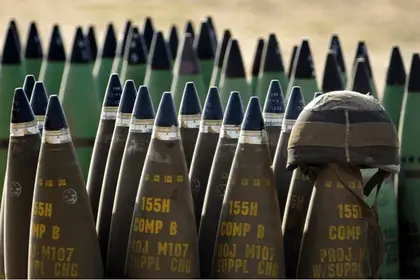A study by scientists from the University of East Anglia, the British Trust for Ornithology and the Estonian University of Life Sciences, which was published in the scientific journal Current Biology on Monday, May 20, underlines the impact of the war in Ukraine on migratory birds.
The study focused on migrating raptors, birds of prey, and more specifically the Greater Spotted Eagle which is included as one of over 44,000 vulnerable species on the International Union for the Conservation of Nature’s (IUCN) Red List.
JOIN US ON TELEGRAM
Follow our coverage of the war on the @Kyivpost_official.
Scientists studied the flight paths of 19 birds using GPS trackers as they returned from wintering in Greece and East Africa en route to their breeding grounds in the forest-steppe zone of Eurasia that runs from the south of Finland to Kaliningrad and Belarus.
The obtained GPS data shows that the birds began to adjust their migratory flight paths through Ukraine shortly after Russia’s full-scale invasion of Ukraine. Now, they not only make large detours to avoid areas where fighting is taking place but have also reduced or totally avoided the pitstops they used to make to rest and recover.
As a result, the birds had to fly an additional 85 kilometers which added an average of 55 hours to their trip. It was recorded that, prior to the start of the war, 90 percent of the birds stopped at least once in Ukraine but now less than a third do with many avoiding the country completely.

ISW Russian Offensive Campaign Assessment, January 25, 2025
Charlie Russell, a scientist from the University of East Anglia, said that because the birds took longer to reach their breeding sites, they not only expended more energy but were suffering from extreme stress in this leg of their flight. This would negatively affect the birds' ability to successfully reproduce and their ability to succor their chicks and, therefore, their chances of survival.
Russell said, “Right now, there is not much that we can do, but it's important that we are understanding the stresses on these populations, so that in a post-conflict scenario we can help to not just support greater spotted eagle populations and help them recover, but ecosystems as a whole.”
Dr Josh Milburn, from Loughborough University, who has carried out research on the effects of warfare on wild and domestic animals, said the study confirmed and expanded on previous studies into the negative effects of the war on Ukraine's domesticated and captive wild animals.
“On rare occasions, wild animals can benefit from human conflict,” he said. “But the findings of this study echo what we know from previous research… war has an overwhelmingly negative impact on wild animals – both in terms of conservation goals and in terms of the suffering of individual animals.”
You can also highlight the text and press Ctrl + Enter










